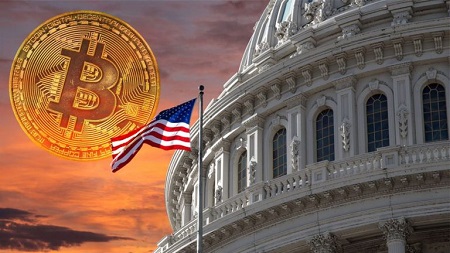The US Department of Justice seized about $1 billion worth of bitcoin (BTC) from a man who “illegally” obtained more than 50,000 bitcoins from the Silk Road dark web market in 2012.
James Zhong pleaded guilty to wire fraud on November 4 and will be sentenced in February 2023.
According to the US attorney for the southern district of New York, Damian Williams, the whereabouts of the stolen 50,000 BTC remained unknown for over a decade.
Despite Zhong’s efforts to conceal his loot through a series of complex transactions, law enforcement was able to follow the bitcoin trail. The total value of the seized bitcoin was estimated to be about $3.4 billion. About $662,000 in cash was also discovered.
The Volatility of Cryptocurrency Prices Disrupts the Government’s Plans
Several departments and agencies within the United States government frequently confiscate and auction off high-value items and metals. However, none of the seized assets exhibit the same degree of price volatility as digital currencies. New challenges and concerns have emerged as a result.
For example, a government agency’s budget could have benefited from a timely sale of bitcoin, which has witnessed significant price appreciation. But bitcoin holdings under the control of the US government have been affected by the bear market.
The United States Treasury is Now the Largest Bitcoin Holder
With its most recent bitcoin loot seizure, the United States government now holds more bitcoins than Microstrategy, Block.one, or the surviving bitcoins from the defunct Mt. Gox crypto exchange, all of which will be made public soon.
The Treasury Forfeiture Fund (TFF) is a repository for forfeited assets that are not subject to taxation until the Treasury Executive Office for Asset Forfeiture determines what to do with them.
In the past, confiscated properties were auctioned off to the highest bidder. Tim Draper, a venture capitalist, purchased 30,000 bitcoins in 2014 for an undisclosed sum.
What is the size of the US Government’s Bitcoin Holdings?
Information about how many bitcoins are in government possession can usually be found on Forfeiture.gov, which keeps track of administrative, civil, and criminal forfeiture actions brought by the Justice Department.
According to Fortune, however, there is a time lag between when an online report is published and when it is seized. There is no online repository for reports, and no hard copies are produced. In the same way, the Bitcoin addresses that can be used to track down the owners of each wallet are not available.
Bitcoin has been confiscated by several authorities over the years, complicating matters even further. Because bitcoin is based on the idea that everything should be transparent, not knowing who owns the government’s bitcoin stash is detrimental to the entire bitcoin ecosystem.
If you would like to read more news articles like this, visit DeFi Planet and follow us on Twitter, LinkedIn, Facebook, and Instagram.
“Take control of your crypto portfolio with MARKETS PRO, DeFi Planet’s suite of analytics tools.”





















